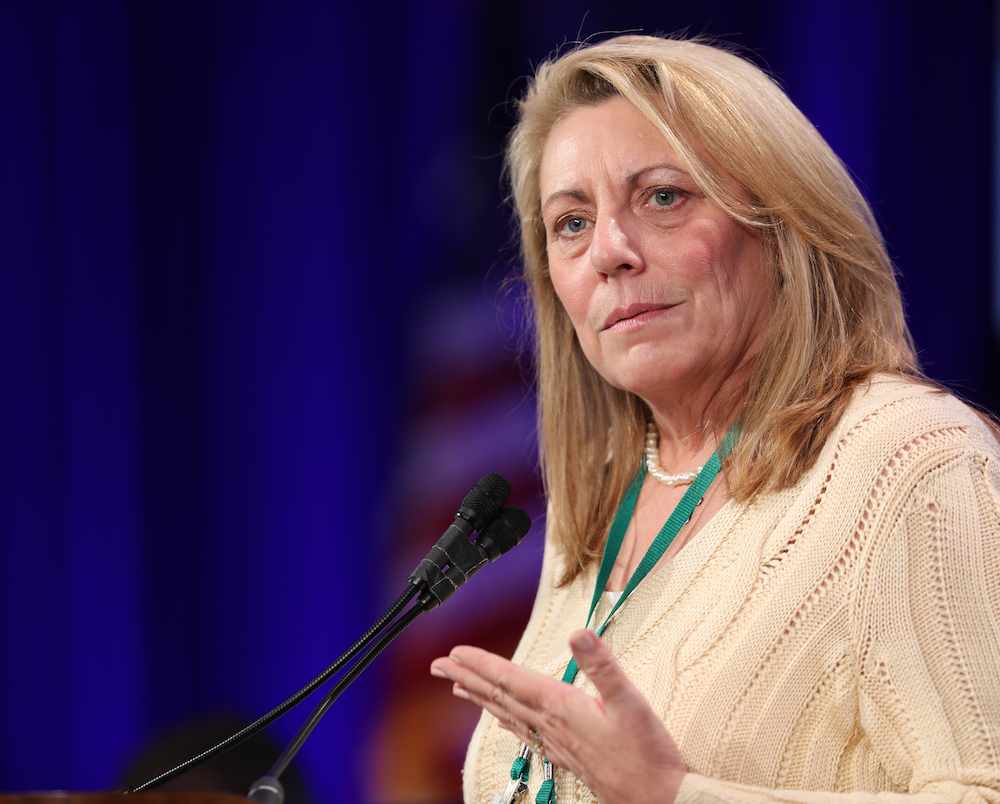Heather Banis, victim assistance coordinator for the Archdiocese of Los Angeles, told bishops gathered Nov. 13 for the second day of their annual fall meeting in Baltimore that helping victims and survivors of child sex abuse heal is a journey and one that involves showing them repeated trustworthiness.
It begins with listening, understanding, offering responses showing that they, the victim-survivors, are believed, she said.
Banis, a trauma psychologist, addressed the bishops as they deal with the current clergy sex abuse crisis and plan how to move forward.
Using a PowerPoint presentation, she told bishops that abuse by clergy is a betrayal trauma, effects of which are compounded by secrecy, denial and cover-up.
She told bishops to begin the journey toward healing by believing those who come forward with allegations, acknowledging the victim-survivor, offering counseling and support right away. She also told them to remove accused priests from ministry right away, pending the outcome of an investigation.
"Demonstrate trustworthiness again and again," she said.
Much of what she said is already practiced by the church in the United States in cases of suspected abuse. She advised bishops to post the names of credibly or plausibly accused clergy. She also told bishops to be accessible to victim-survivors, to pray for them at every Mass, to talk about it during homilies, hold healing liturgies, to foster a culture of outreach and support, and provide sacred spaces and places.
Be victim-centric, she said. And yet each person will need something different, so being flexible and open to what the victim-survivor needs is crucial, she said.
She also told them to remember, "They were children and they were betrayed."
Healing doesn't happen overnight, she said, or come with a settlement, or even with multiple sessions with a psychologist.
"It's a journey," she said. "We need to prepare ourselves for listening deeply for understanding."
She told the bishops to dedicate time to meeting with and listening to "victim-survivors" face to face.
"We learn from hearing their sacred stories, and we honor them in those stories, but it's very different when you (bishops) do it," she said. "The power of that exchange can be remarkable."
By listening, "you bring victim-survivors out of silence," she said. A lot of what the church is practicing is working, she said.
"It is working. The numbers tell us that," she said. "But it's working because of vigilance. It's working because we're paying attention. We have to stay alert and vigilant."

